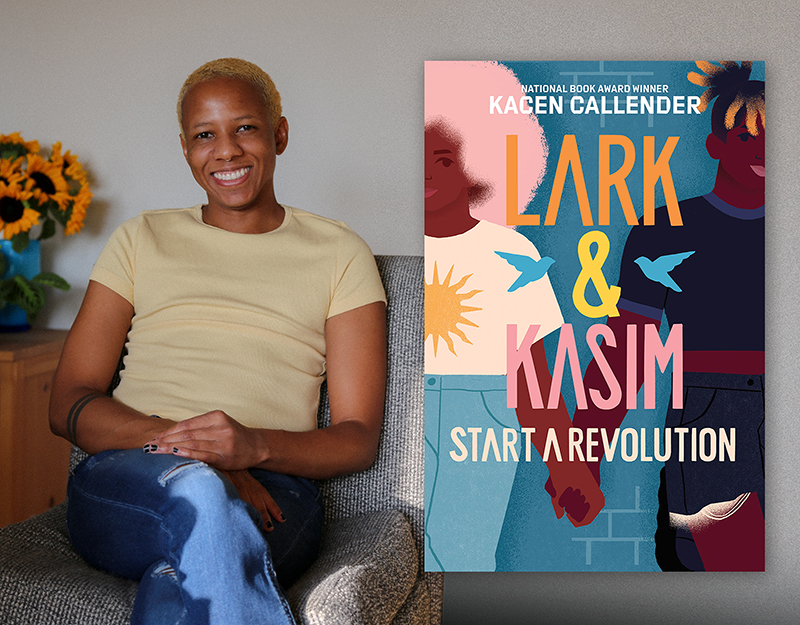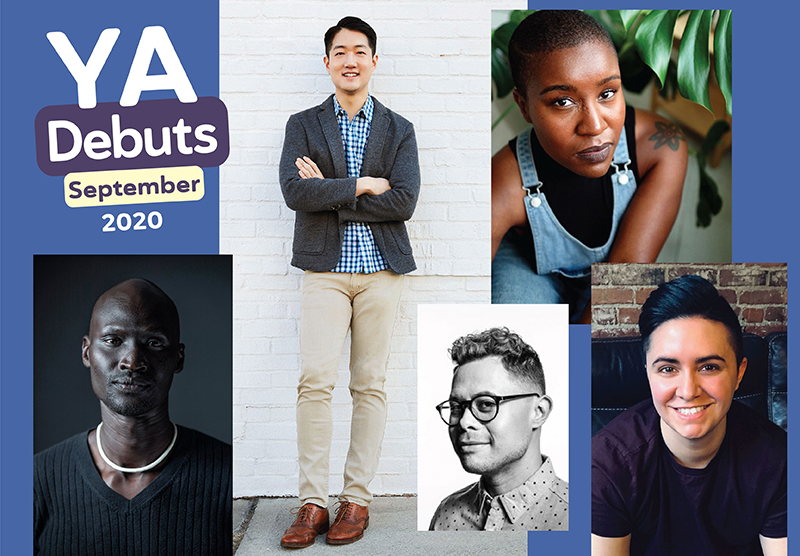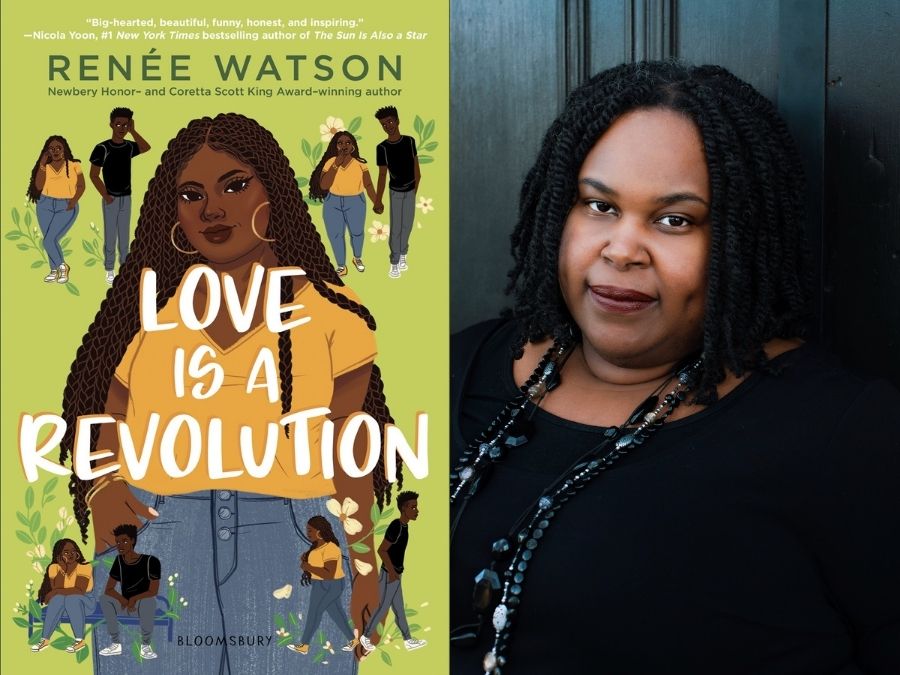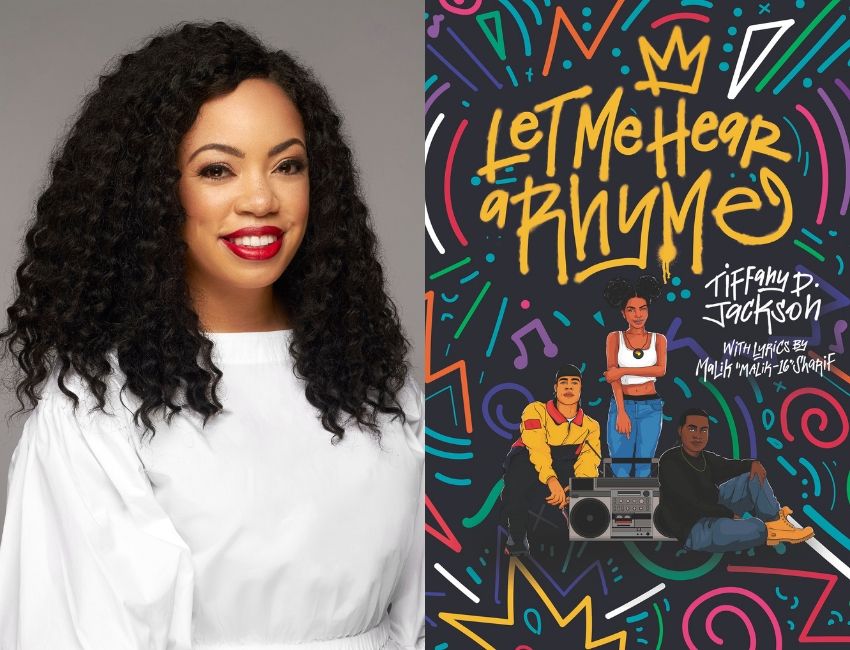Cranking Up the Creep-factor with Author Lygia Day Peñaflor
by Derek Ivie
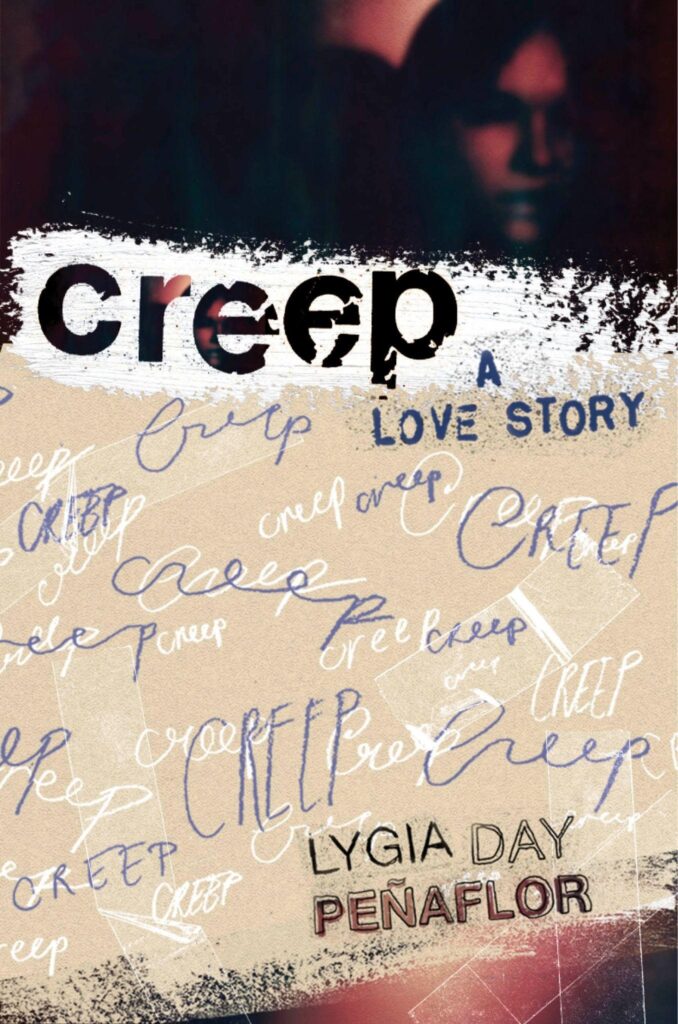

Infatuation, desperation, and complicated relationships are at the center of Lygia Day Peñaflor’s newest YA novel, Creep: A Love Story published on September 27th. Readers will squirm (in the best way possible) as high school sophomore Rafi’s obsession with popular couple Laney and Nico boils over. Lygia discusses her inspirations, the art of writing complex characters, and her vote for proper milkshake viscosity!
Our title Creep: A Love Story feels like it has opposing forces at work. How do you think this speaks to the essence of the book?
The title definitely sets the tone. There is opposition at work throughout the book. Rafi is a lonely outsider. And Laney and Nico are the happiest, most popular couple at Holy Family High School. When Rafi and the couple collide, Rafi feels an instant connection, but the two barely notice her. Rafi becomes desperate for their attention. This can only lead to disaster.
ADVERTISEMENT
ADVERTISEMENT
Hearing the word “creep” makes me think of two songs, Creep by TLC and Creep by Radiohead. Did either of these come to mind when you were writing?
This book was inspired by Creep by Radiohead. For years, every time I heard it, I thought about writing this book. I imagined Rafi, Laney and Nico, and scenes would play out in my head like a music video. When I hear the song now, I honestly can’t believe I did it – it’s a real book now, and I borrowed the title from the song. It’s crazy.
Speaking of music, there is a ton of it throughout the novel, how did you decide which songs to use?
It was easy to imagine the music my characters would like. Rafi’s grandpa has a vinyl collection and likes Billy Joel. There are fictional songs, too, since Rafi’s dad is a roadie for a band I called Sons of Orwell, inspired by Pearl Jam. Laney’s Etta James suits her lyrical dance style. Nico sings Elvis on karaoke, which I included because Elvis is my mom’s favorite. Because of her obsession, I knew that Rafi would immerse herself in the couple’s music. It was important to include that. Of course, Radiohead plays a big part.
Do you listen to music while writing?
Always! I create a playlist that’s set in my characters’ world and replay it on shuffle. Music is the quickest way for me to get into the right headspace.
The dedication page states that a starry-eyed freshman “crept” up to you to let you know you had the cutest boyfriend. Who was that person? Why did that memory stay with you?
I didn’t know that girl at all, which is why it felt strange when she approached me. The memory probably stuck because I realized she’d been watching me and my boyfriend and envying me from afar. I used to admire older couples, so it was flattering, but it was also creepy. I never forgot her.
This story takes place at a private Catholic school. What made you want to use this as a backdrop to the story?
Holy Family was inspired by my own high school. My school was established in the late eighties, and now many children of former graduates attend the school. This was the perfect setting for Rafi because I wanted her parents to be Holy Family grads. I also wanted to include Mass, the choir, and the tight-knit community. I don’t see many YA books set in Catholic school, so I also thought readers would appreciate it.
You’ve created a diverse cast at Holy Family. Why was that important to you?
The student body reflects the demographic of a Long Island Catholic school. Laney Villanueva is Filipina American, and so am I. It was fun for me to write her as one of the in-crowd, the one who’s admired by her classmates, and of course, by Rafi, the stalker.
You tell a relationship story from an outside perspective? What made you want to let the voyeur share major moments in Laney and Nico’s relationship?
The popular couple is always fascinating, but following them through Rafi’s heightened point of view was even more compelling to me. Rafi’s perspective satisfies the fantasy we’ve all had of being a fly on the wall of someone else’s life. I let Rafi live out the voyeuristic desires that the rest of us hold back.
Rafi is a complicated character to say the least. How do you balance us wanting to feel sympathetic for her (mom not around, fallout with her best friend, sad ground turkey selfies) with us being completely horrified by her actions?
I think the balance worked because I wasn’t strategic about it. I wasn’t trying to gain sympathy for Rafi. I just wanted to make her as real as possible. Rafi was never a villain to me, so maybe readers pick up on that and are able to feel for her. Her backstory evolved as I wrote. Her difficult home life with her grandparents and her loneliness at school don’t excuse her behavior, but they do help readers understand her.
In their first interaction, Rafi sets the scene for her infatuation (I’m not sure I’ll look at Luden’s cough drops the same way again). How did you know when to amp up the creep factor?
Rafi doesn’t understand the “line” between casually friendly and full-on stalker. Sometimes her behavior seems fine, sometimes not so much, other times…yikes! But Rafi always has reasons; she thinks she’s doing something good, or maybe she’s being helpful, or she’s just naturally curious. I dialed up the creep factor during her moments of desperation and if an opportunity presented itself, like when she was at Nico’s house while babysitting his sister.
Yearbook superlatives come up as it is Nico and Laney’s senior year. Did they have those at your high school and if so, what were yours?
We did! We had the usual superlatives, but I remember thinking that “best dressed” was really dumb because we wore uniforms. In Creep, I included that as one of Rafi’s observations. And the character Tomás Diaz refuses to take his superlative photo because he thinks “best hair” is really stupid.
Was there a scene in particular that you loved writing the most?
I have a few, but there’s a paragraph where Nico delivers roses to Laney. That paragraph is one of my favorite things I’ve ever written. There should be a word for the sad satisfaction writers feel when we’ve just written something we love but we know we’ll never experience writing it again.
In both Creep: A Love Story and All of This is True there is a main character that can’t be trusted. How do these characters form themselves as you are writing?
I just try to write realistic characters, and anyone can be deceitful under certain circumstances. In All of This Is True, Fatima Ro is desperate to write her next novel, which is why she ends up writing about her young friends’ secrets. In Creep: A Love Story, Rafi just wants to connect with people to feel special. Their actions stem from their motives.
Do you like creating untrustworthy characters?
I like exploring the question “How far would you go?” because everyone has a different opinion of what’s acceptable and what goes too far. That’s always interesting to me.
Would you consider Rafi an unreliable narrator? Why or why not?
This is going to sound like the wrong answer, but I think that Rafi is the most reliable person at Holy Family High School. I mean, if you need to know what’s happening behind those walls, who would you ask? Rafi! Remember Carl, the custodian in The Breakfast Club? Rafi is like that. She’s the “eyes and ears of this institution”!
Both of these books take place on Long Island, NY. Why do you set your stories here?
ADVERTISEMENT
ADVERTISEMENT
I grew up on Long Island, and I love including details for Long Island readers in my books. In Creep, I name drop Old Westbury Gardens, Hempstead Turnpike, Garden City, and celebrities who are from here, like Natalie Portman and Mariah Carey.
Diners are a key part of growing up on Long Island – Rafi’s parents had set diner orders when they were teenagers. Do you have a go-to diner meal?
Eggwhite omelet with spinach, tomatoes, mushrooms and swiss. And, like Rafi, I love a thick coffee ice cream shake, so thick that you have to start it with a spoon because it’s too thick to start with a straw.
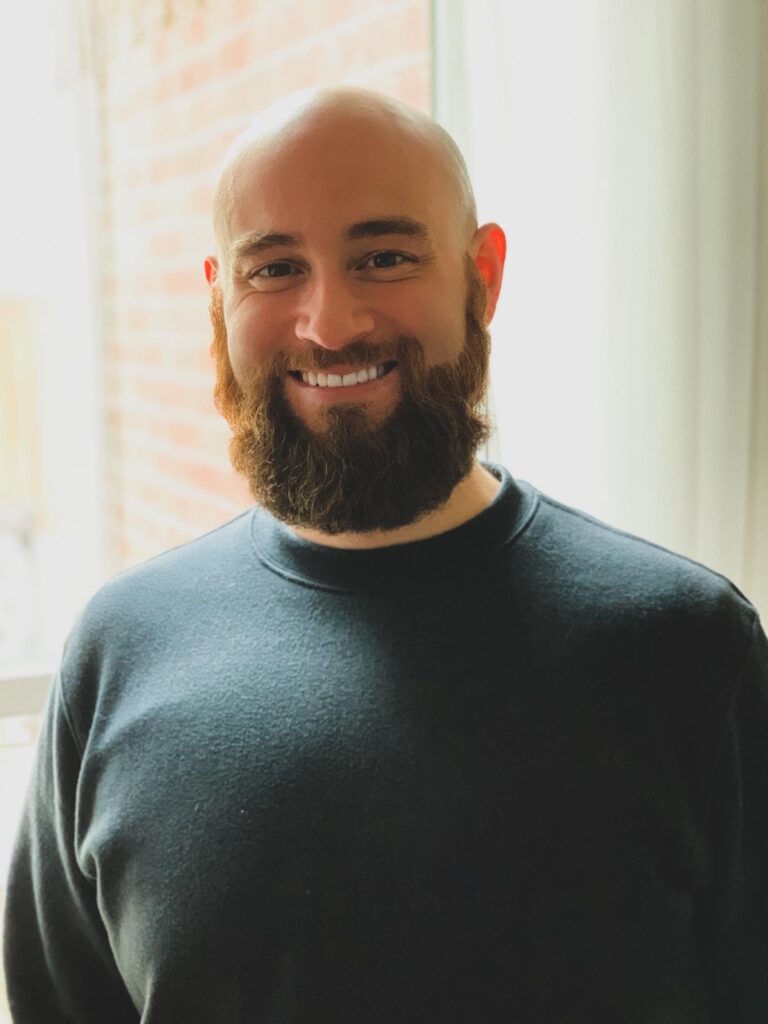
Derek Ivie (he/him) is the Youth Services Coordinator at the Suffolk Cooperative Library System in Bellport, NY. He has served on numerous book committees including We Need Diverse Books’ Walter Awards, YALSA’s Quick Picks for Reluctant Young Adult Readers, and the Michael L. Printz Award Committee. He is a co-founder of the Long Island Library Pride Alliance, a group committed to LGBTQIA+ education in local libraries. When not in the library, he is usually obsessing over his dogs or chatting about all things pop culture as the co-host of the A Bite Of podcast!
About CREEP: A LOVE STORY
You meets To All the Boys I’ve Loved Before in this twisted, tragic love story that follows Holy Family High School’s cutest couple–as told through the eyes of the classmate who’s stalking them.
Laney Villanueva and Nico Fiore are the perfect couple: beautiful, popular, talented, and hopelessly in love. Everyone looks up to them at Holy Family High School.
But Rafi doesn’t just admire them. She watches them. She’s drawn to them.
Intent on becoming their closest friend, Rafi weaves her way into their lives. She starts small: taking photos of the senior class for the yearbook, joining Laney’s club, and babysitting Nico’s little sister. And it works–soon they invite her to parties, take her on joyrides, and ask her for favors. Rafi’s actions quickly turn invasive, delving deeper and deeper until she’s consumed by their most intimate secrets.
When tragedy strikes the young lovers, Rafi’s obsession spirals, and she will do anything to keep the perfect couple together. Anything . . .
Filed under: Teen Fiction
About Karen Jensen, MLS
Karen Jensen has been a Teen Services Librarian for almost 30 years. She created TLT in 2011 and is the co-editor of The Whole Library Handbook: Teen Services with Heather Booth (ALA Editions, 2014).
ADVERTISEMENT
ADVERTISEMENT
SLJ Blog Network
Name That LEGO Book Cover! (#53)
Cover Reveal and Q&A: The One and Only Googoosh with Azadeh Westergaard
K is in Trouble | Review
Fighting Public School Book Bans with the Civil Rights Act
ADVERTISEMENT



